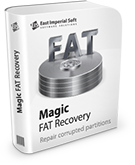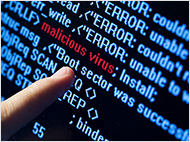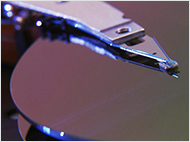Using 64 GB Memory Cards in Non-Supporting Devices
- Published: July 3, 2015
- Updated: September 5, 2021
Sometimes, one can use a 64 GB SD card in a device advertised as only supporting up to 32 GB SD cards. Formatting the card to FAT32 may do the trick. Or not? Read about the use of alternative file systems on SDXC cards, and learn why many data recovery tools should be never allowed to touch your 64 GB SD cards.

However, if this is the case and exFAT is the only reason preventing your device from recognizing the larger memory card, there is something you can do about it. It could be as simple and straightforward as backing up the content of your memory card and reformatting it with FAT32. This may not be a bad move after all, and this is why.
FAT32 is a universally recognized file system, meaning that you may be able to access FAT32 volumes from a larger number of computers (especially those running alternative operating systems such as Linux and Ubuntu) compared with same-size exFAT cards. FAT32 supports volumes up to 2 TB, which is also the maximum theoretical capacity of an SDXC card. And if the device supports the older SDHC format, the device can recognize FAT32 as the file system on the larger memory card.
The question, however, is whether or not the device will support an SDXC card formatted with a different file system. In order to be fully compliant with the SDXC card specification, some SDXC-compatible card readers are firmware-programmed to expect exFAT on cards larger than 32 GB. As a result, these card readers may reject an SDXC card formatted as FAT32, even if that very same device is happy to support FAT32 on SDHC compliant memory cards. Therefore, you may not be able to use the larger memory card even if your smartphone has an SDXC-capable reader and supports FAT32 for smaller memory cards. In a word, it all depends on how strictly the SDXC card specification has been enforced in a particular card reader controller.
You can use the free “SD Formatter for SD/SDHC/SDXC” tool officially available from SD Card association at www.sdcard.org

64 GB SD Cards and Data Recovery
There are many data recovery tools on the market that claim full support for all types of memory cards, and then listing all the formats they could remember. For the most part, recovering data from SD cards is little different to recovering data from a comparably sized USB flash drive, so their claims are substantiated. However, the introduction of the SDXC standard and the mandatory use of exFAT on all cards 64 GB and larger puts these claims to a good challenge. Even if you use an SDXC-compatible card reader, a non-compatible data recovery tool may not recognize the file system used in that memory card. As data recovery tools use low-level mechanisms to access and recover information and bypass file system drivers of the host operating system (e.g. Windows), they may see an absolutely healthy 64 GB SDXC card formatted with exFAT as a corrupted FAT32 volume. Needless to say, if you try to recover data with a tool not supporting exFAT out of the box, you will almost inevitably corrupt data stored on that memory card, making subsequent recovery much more complicated.
To determine whether or not a particular data recovery tool is compatible with larger SD cards, look carefully at its official specifications. Ignore the claims of supporting “all types of memory cards”; they mean nothing unless the appropriate file system is supported. Instead, look for the list of supported file systems. If it’s a short list of “FAT; FAT16; FAT32”, then the tool is NOT compatible with 64 GB SD cards, and it should NOT be used to attempt the recovery of such cards.
You need a tool that says something like this: “exFAT; FAT16; FAT32” (as well as any other file systems, which are optional for SD card recovery). “exFAT” is the key word here. If the tool supports the exFAT file system, then it will be able to handle your SDXC memory card correctly, and apply proper techniques for recovering data from that card.
Like This Article?
Stay Tuned






Comments